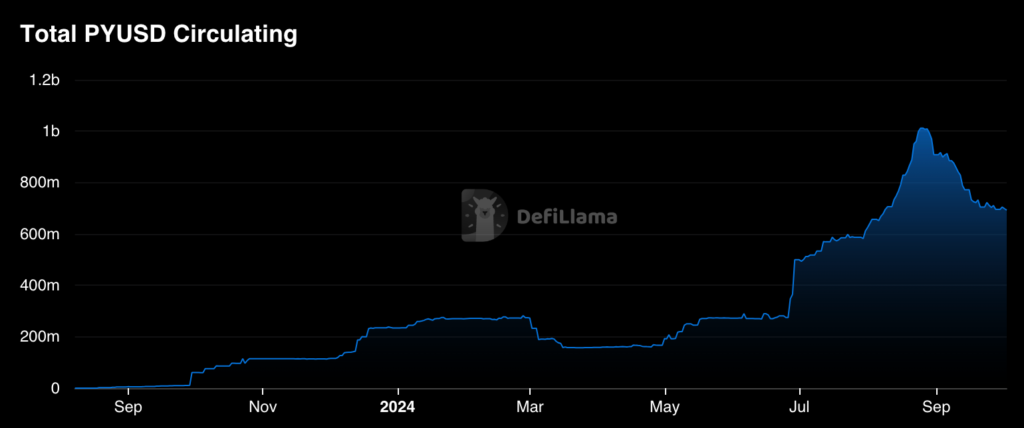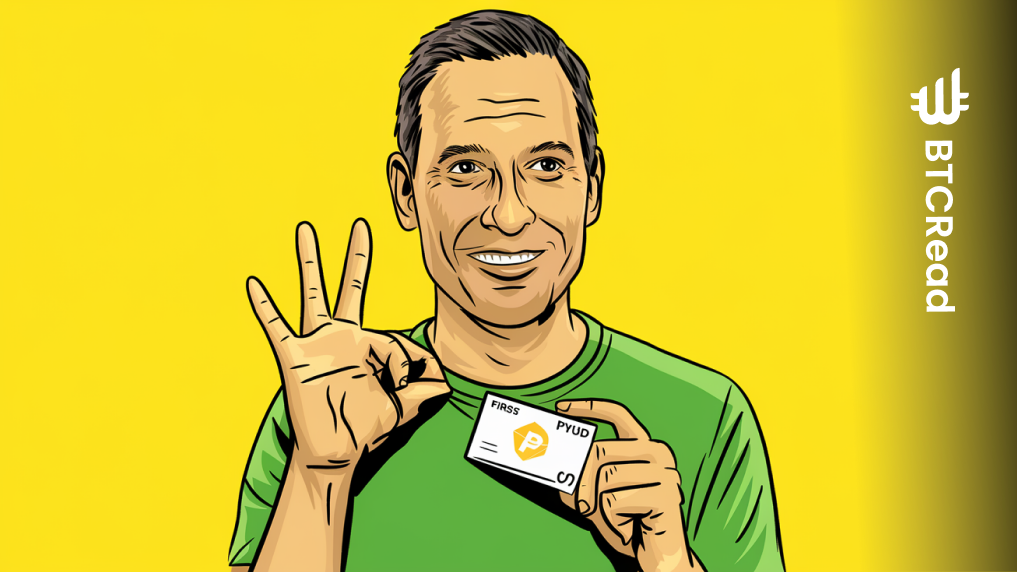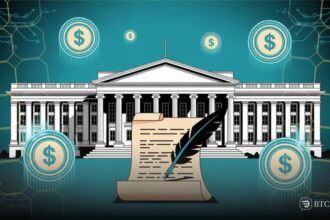PayPal has made its first business payment using its own USD-backed stablecoin, PayPal USD (PYUSD). As reported by Bloomberg on Oct. 3, the payment went to Ernst & Young, one of the Big Four accounting firms, through SAP’s digital currency platform. Although PayPal didn’t reveal the invoice amount, it partners with Ernst & Young for auditing.
The transaction aimed to show how companies can use stablecoins for quick payments. PayPal introduced its own stablecoin, PYUSD, in Aug. 2023. U.S. dollar deposits and short-term U.S. Treasurys back it. As of now, PYUSD has a market cap of $699 million, making it the eighth-largest stablecoin, according to DefiLlama.

A stablecoin is a type of cryptocurrency designed to maintain a steady value by linking it to something like the US dollar. This stability makes it better for regular transactions and helps avoid the wild price swings you often see with other cryptocurrencies.
Tether leads stablecoin market
PayPal’s senior vice president of blockchain, cryptocurrency, and digital currency, Jose Fernandez da Ponte, explained that this approach is ideal for the enterprise setting. He also mentioned that discussing it with a CFO is a logical step. Additionally, PayPal has been stepping up its game in the digital asset space.
Last month, the company revealed that U.S. business users (except those in New York) can now buy, sell, and trade cryptocurrencies directly through their PayPal accounts. Meanwhile, the stablecoin market is attracting traction, with more players jumping in as clearer regulations start to take shape worldwide. Robinhood and Revolut are exploring the idea of creating their own stablecoins in certain regions.
Consequently, this move comes as the European Union’s upcoming MiCA regulations are expected to change how the market handles crypto products, including stablecoins, prompting stricter compliance. In the last two years, Tether’s USDT has become the stablecoin market leader. Currently, USDT has a market cap of $119.7 billion, leaving its nearest rival, USD Coin, far behind with $35.3 billion.
Related | Kraken expands to Bermuda with licensed crypto derivatives







